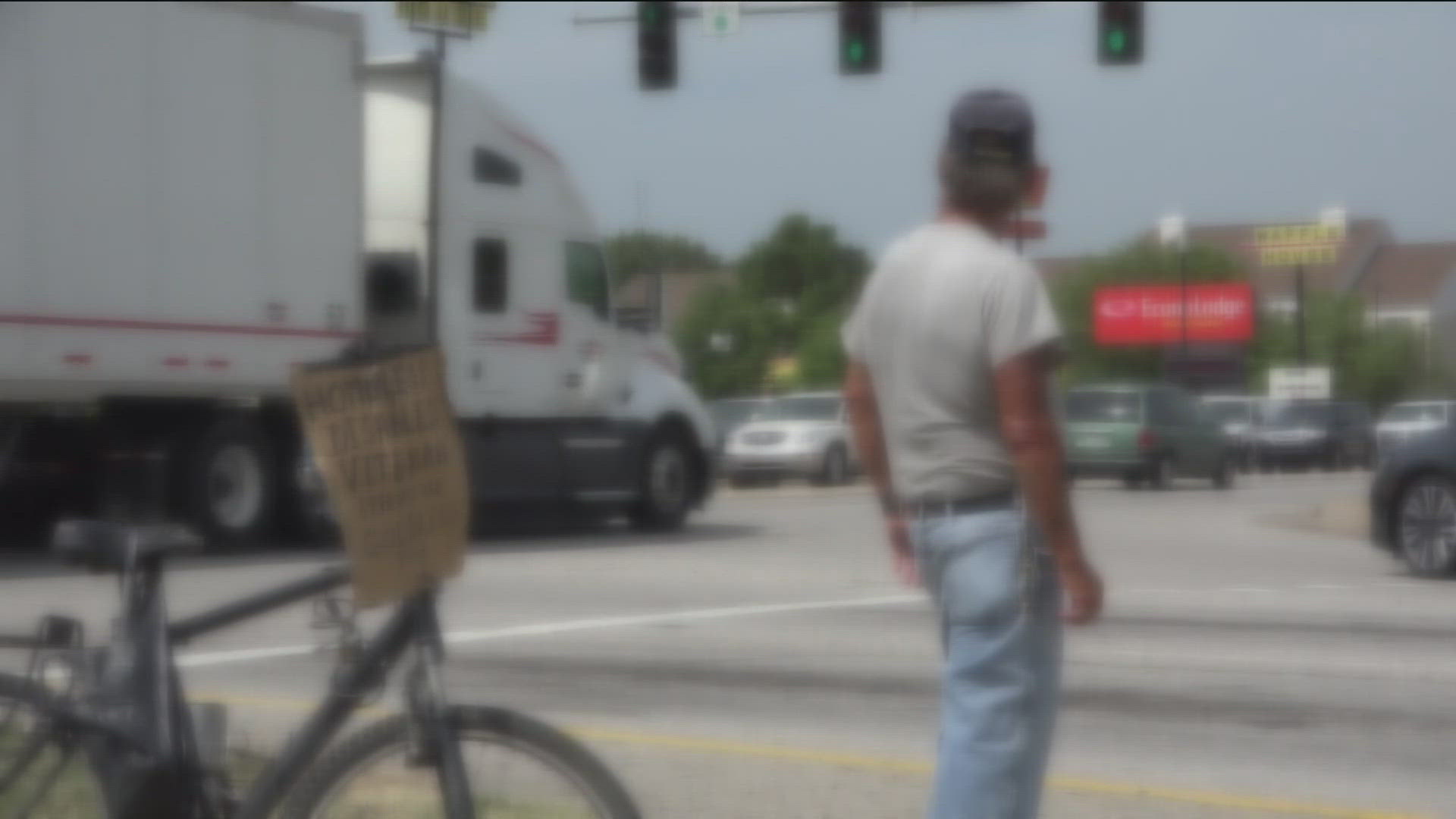TOLEDO, Ohio — By a decision of 6 to 3, the Supreme Court ruled in favor of allowing cities to ban public camping by people who are experiencing homelessness.
Both St. Paul's Community Center and The Toledo Lucas County Homelessness Board agreed that the Supreme Court's ruling on public camping bans when there are no other shelter options is a terrible idea, because the people the organizations service need more assistance, not a law against them.
"A lot of the folks who may be living on the street have a lack of trust because other people have used abused, stolen or violated them in some way," Julie Embree with the Toledo Lucas County Homelessness Board said. "So going to a shelter might be a really scary thing."
The ruling, decided in late June, could potentially affect the more than 650,000 people estimated to be homeless, according to a 2023 report by the U.S. Department of Housing and Urban Development.
St. Paul's Executive Director Joseph Habib said this ruling is problematic.
"The people experiencing homelessness are going to be by far most affected," Habib said. "We just made it more difficult for individuals experiencing homelessness to get out of the legal system."
Data found more than 18,000 people across both Ohio and Michigan were without homes last year. Habib said you cannot legislate homelessness away. Embree agreed, saying the first step to help fix the issue is to give them a home.
"It's a community solution where we come together," Embree said. "We need more affordable housing, we need more services and we need more outreach to be able to connect folks."
It's a mission that is ongoing for all involved.
"We are here for the service of the people and we are successful when an individual gets housed, gets connected with community resources and then gets dignified living in their own place," Habib said.
WTOL 11 reached out to The Fair Housing Center, a local nonprofit civil rights agency, for thoughts on the ruling. The center's CEO and general counsel, George Thomas, made this statement:
"When the government decides to force a person--especially a homeless person--to leave a place normally left open to the public, that decision must be made with compassion and a careful eye to any potential harm. If the local community provides no homelessness services or anywhere else that the individual can go, the action can amount to cruel and unusual punishment.
Imagine you have lost your home and have nowhere to go except a public space, and the government threatens imprisonment if you don't leave. But leave to go where? Essentially, your only choice may be imprisonment—even though you've done nothing wrong.
Those were the basic facts in city of Grants Pass, Oregon v. Johnson. The outcome of that case should have been obvious. Criminally prosecuting a homeless person for being homeless should be intolerable in the United States. It is cruel and unusual. Communities should carefully work to provide services for homeless persons before requiring them to leave public spaces. But sadly, the Supreme Court reached the opposition conclusion.
This decision is particularly troubling as it invokes even further harm to already vulnerable populations. Homelessness is a Fair Housing issue. Homelessness disparately harms persons of color, persons with disabilities, especially mental health disabilities, persons recovering from substance abuse, and the LGBT community. Members or our society already at the margins may now face criminal penalties simply because they cannot access housing opportunities.
As residents of Lucas County and Toledo, we should all feel proud that our community does work hard to help homeless persons. This recent decision uncovers that not every community is so lucky. We encourage all communities across the country to do more to help uplift, not punish, the homeless."
WTOL 11 also reached out to Neighborhood Properties, a local provider working to end homelessness, for thoughts on this national ruling. The director of Community Relations and Development, Alexandria Thomas Hollen, said in a statement:
“Homelessness remains a complex challenge affecting individuals, families, and entire communities. While the Supreme Court decision is concerning, it presents an opportunity for communities like ours to take proactive steps now. We can choose how to address the issue of homelessness and do so in a manner that embodies our commitment to minimizing harm to our most vulnerable populations.
What we know is that nearly 30% to 40% of those experiencing homelessness are grappling with significant traumas such as mental health challenges, substance use disorders, or both. There is a real human toll to this issue. A primary driver of homelessness is the acute shortage of affordable housing and supportive services. As a community, we must advocate for our needs and work collectively to increase the availability of essential resources that will meet the growing demand. Notably, almost 14% of individuals experiencing homelessness in our community are facing this hardship for the very first time.
By enhancing our support systems, educating the community, and expanding affordable housing options, we can make a meaningful impact on the lives of those in need and create a more compassionate, inclusive community for all.”
If you or someone you know is struggling to maintain or find housing, call 2-1-1 for assistance.
MORE FROM WTOL 11 NEWS:

